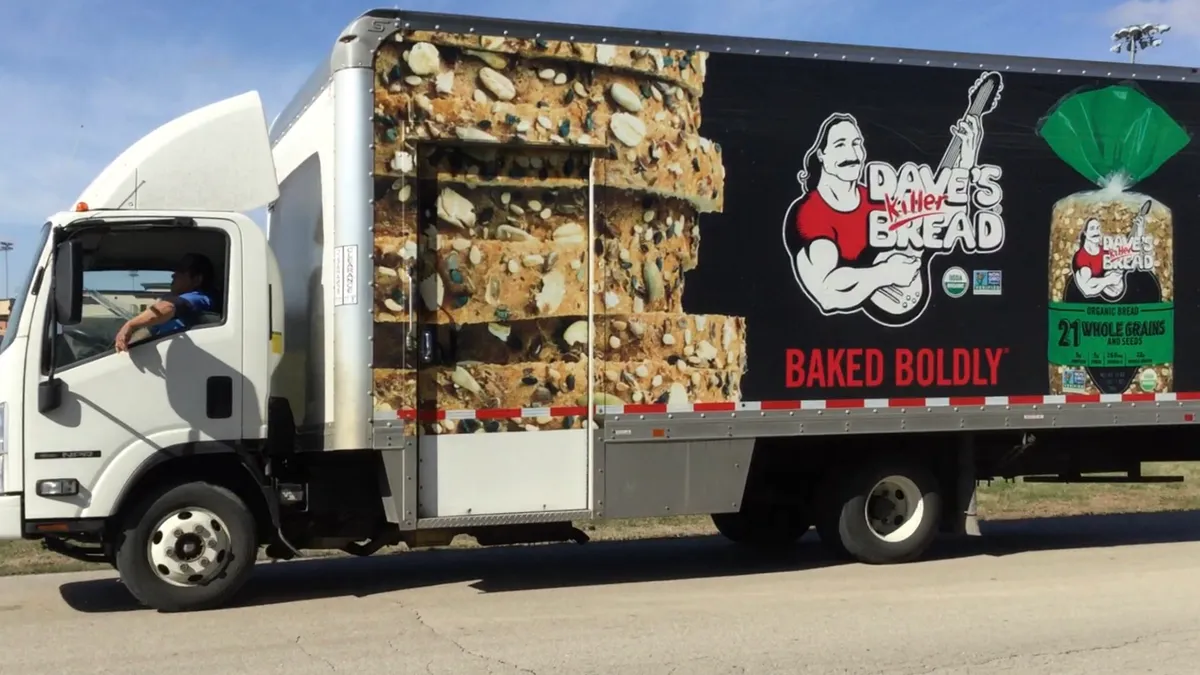The nonprofit Jobs for the Future announced Thursday the acquisition of a “second chance” hiring program operated by Dave’s Killer Bread Foundation, a nonprofit organization associated with the Dave’s Killer Bread brand, according to an email sent to HR Dive.
Established by Dave’s Killer Bread in 2015, the foundation primarily promoted the brand’s recruitment strategy of hiring formerly incarcerated people as well as those with criminal records. The company took inspiration from founder Dave Dahl, who served 15 years in prison prior to Dave’s Killer Bread’s establishment.
Since 2015, the foundation has partnered with employers by providing an eight-week training course for talent and HR personnel on evaluating hiring practices and implementing employment strategies that reduce barriers for candidates who were formerly incarcerated or who have criminal records.
According to JFF’s statement, a total of 34 companies have completed the program, including Dick’s Sporting Goods, General Motors and Union Pacific Railroad, among others.
A spokesperson for JFF told HR Dive via email that the Dave’s Killer Bread Foundation name will not be used for the hiring program moving forward; it will instead be called the Second Chance Hiring program and will be situated under JFF’s Center for Justice and Economic Advancement. Genevieve Martin, the foundation’s executive director, will join JFF as senior director and continue to lead the fair chance hiring program.
"Jobs for the Future has a well-earned reputation as an organization with a unique ability to bridge the divide between policy, programs and employer practice," Martin said in the statement. "Joining this team is a natural evolution of our work and will create opportunities for us to achieve our mission at a larger scale as a member of a mission-driven organization with deep connections to employers, education and training providers and policymakers."
Second chance hiring and similar models have received a growing amount of attention from employers in recent years, particularly during periods of low unemployment. Examples include the “open hiring” model implemented by retailer The Body Shop as well as the Greyston organization, in which job openings are filled on a first-come, first-serve basis with no background checks or drug screenings.
JPMorgan Chase, which is part of the Second Chance Business Coalition, has removed questions about candidates’ criminal backgrounds from job applications and limited the circumstances under which background checks are made. JPMorgan also expanded in 2021 a return-to-work program for people with criminal records after completion of a pilot program in Chicago.
These examples may reflect a growing trend; 66% of HR professionals in a 2021 Society for Human Resource Management survey said that their organizations had hired individuals with criminal records. Second chance hiring also received praise from the U.S. Chamber of Commerce, which published a 2021 report stating that employers saw low turnover and high levels of motivation from formerly incarcerated workers.
On the compliance front, “ban-the-box” laws that forbid employers from asking about candidates’ criminal records have gained bipartisan support. Research published by Case Western Reserve University in 2019 found that removing questions about criminal history increased employment in high-crime U.S. neighborhoods by 4%.













